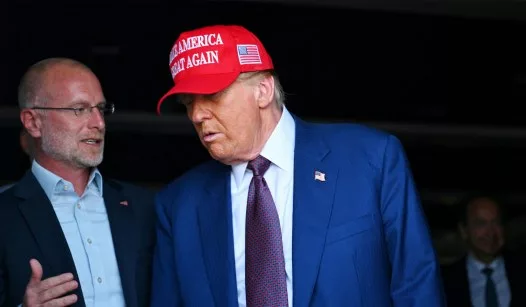In recent months, the Federal Communications Commission (FCC), under the leadership of Brendan Carr, has turned its attention toward media outlets that have been critical of former President Donald Trump. This shift raises significant concerns about the implications for press freedom and the potential consequences for the Republican Party’s long-term relationship with media regulation.
Carr, a Republican appointee, has been vocal about his stance on media fairness, particularly regarding platforms that he perceives as biased against conservative viewpoints. His actions suggest a growing trend among Republicans to leverage regulatory power to influence the media landscape. This approach, while seemingly beneficial to the party in the short term, could set troubling precedents that may backfire in the future.
The current dynamics within the FCC point to a broader strategy to challenge media organizations that have openly criticized Trump and his policies. By targeting these outlets, Carr aims to reshape the narrative and diminish the influence of voices that oppose the Republican agenda. However, this tactic raises questions about the role of government in regulating free speech and the potential chilling effect it may have on journalistic integrity.
As the political landscape continues to evolve, the Republican Party must consider the long-term ramifications of these actions. While they may find temporary success in silencing critics, the precedent set by such regulatory maneuvers could lead to future administrations—regardless of political affiliation—exploiting similar tactics against media outlets that challenge their narratives. This could ultimately undermine the very foundations of a free press that is essential to a functioning democracy.
Moreover, the implications of Carr’s focus on media regulation extend beyond the immediate political arena. They touch on the broader issue of how technology and media are evolving in the digital age. With the rise of social media and alternative news platforms, the traditional media landscape is undergoing a transformation. The FCC’s involvement in this space could lead to a more fragmented media environment, where regulatory actions favor certain narratives over others, further polarizing the public discourse.
In conclusion, while the current Republican leadership may see value in using regulatory power to target media outlets critical of Trump, they must recognize the potential long-term consequences of such actions. Enabling a culture of media regulation based on political favoritism could ultimately harm the party and democracy itself, as future administrations may wield the same power against them. It is crucial for Republicans to reflect on the precedents they are setting today and consider the importance of safeguarding press freedom for the benefit of all.
